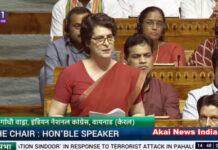
In a significant move aligned with the National Education Policy (NEP) 2020, the Ministry of Education (MoE) has introduced a novel curriculum framework. Revealed on Wednesday, this framework ushers in a transformative era for board exams, featuring changes that cater to the evolving educational landscape.
Key Highlights:
Biannual Board Exams: The new framework introduces a game-changing alteration, mandating board exams to be conducted twice a year. Notably, students will have the privilege of retaining their best score from these assessments. This initiative seeks to ease the pressure of traditional high-stakes exams.
Multilingual Proficiency: The MoE’s curriculum revamp emphasizes linguistic diversity. For students in Classes 11 and 12, a requirement to study two languages is in place. One of these languages must be Indian, a measure that upholds the nation’s cultural and linguistic heritage.
Stream-Free Subject Choice: Departing from the conventional stream-based categorization (Arts, Science, and Commerce), the new framework liberates students’ subject choices. This progressive approach enables students to choose subjects aligned with their interests and aspirations, fostering a holistic learning experience.
On-Demand Exams: The curriculum blueprint envisions a future where school boards will offer ‘on-demand’ exams, a flexible system aimed at accommodating individual learning journeys. This forward-looking approach is anticipated to align education with the dynamism of contemporary times.
Shift in Assessment Paradigm: The framework’s seismic shift in assessment methodology seeks to redefine the purpose of exams. Rather than being a test of rote memorization or extensive coaching, examinations will be centered around gauging comprehension and the application of competencies.
Textbook Optimization: To enhance accessibility and minimize costs, the framework discourages the practice of completely covering textbooks within classrooms. This shift seeks to optimize the utilization of textbooks, aligning with the broader objective of inclusive education.
The Ministry of Education underscores that this comprehensive framework represents a substantial stride toward nurturing an education system that resonates with the principles of the NEP 2020. As part of this progressive journey, new textbooks are in development, slated to enrich the educational landscape from the 2024 academic session. Through these reforms, the MoE seeks to create an environment where learning is holistic, adaptable, and attuned to the diverse needs of students





